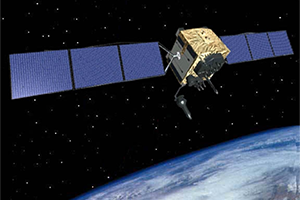Science
NASA Partnership Provides Grants for AU Research Space Grant Consortium funds research opportunities for faculty and students

From human-powered Mars rovers to space particle research, AU students and faculty are working on groundbreaking STEM projects thanks to funding from the DC Space Grant Consortium, an exciting partnership with NASA.
Through the consortium, AU faculty and students are eligible to receive up to $50,000 of grants that go towards undergraduate research in the sciences. The consortium includes seven DC-area universities and an educational non-profit, the INSPIRE Project. It is led by AU’s Nathan Harshman, professor of physics and chair of American University’s Department of Physics, and it is managed by NASA’s Office of STEM Engagement.
The consortium’s overarching mission is to provide funding for undergraduate research across the District of Columbia. It also increases public knowledge of NASA’s work, supports educators and researchers, and encourages students to pursue advanced degrees and careers in STEM fields.
“Our goal is to provide the training to support NASA missions,” says Harshman, “including workforce development in a way that increases diversity and inclusion.”
Supporting the NASA Mission
Since 1999, the DC Space Grant Consortium has awarded grants to hundreds of teachers and students for different focus areas surrounding the NASA mission. Recently, students funded by the consortium used this research money to create a human-powered Mars rover that won high praise at a NASA-operated competition. Currently, the consortium is focusing on honoring the anniversary of the Apollo space missions. The theme of space continues with the new ThinSat program, which works with local DC public schools. ThinSat is a way for schools to launch a low-cost satellite to orbit the Earth, transmitting data on particles found in space. AU’s program has partnered with middle schools in the DC area to collectively send their own satellites into space.
Consortium funds have gone to nine American University undergrads and two faculty members just this summer. Two of these winners are American University student Lily Donaldson (BS computer science ’20) and Katie DeCicco-Skinner, associate professor of biology and chair of AU’s Department of Biology. Donaldson is working on the ThinSat program, creating an open source library for the particle detectors to be used by anyone. “We’re helping other people send things to space,” she says, “especially middle schools and high schools who don’t have the resources to do it on their own.” DeCicco-Skinner is using her funds to investigate how obesity interacts with cancer treatment resistance and is helping female undergraduate students gain hands-on research experience in the field of cancer studies.
Moving Forward
The Space Grant Consortium has had a very direct impact on other students at American University as well. Harshman is currently working with the Underrepresented Students in STEM Club at AU to create the Hope Scholarship, given to traditionally underrepresented students to go towards their graduate school tuition. This scholarship began in 2018 and will become an annual award.
The DC Space Grant Consortium is growing—soon it will finalize partnerships with Georgetown University, the Smithsonian Institution, and many more organizations in the area, all to give more opportunities to undergraduate students. Donaldson says she’s thankful for the research opportunities available through the consortium—and through other venues. “There are so many opportunities for research at American University. Just ask. The AU sciences department is small, and that gives students so many easy opportunities for research.”
